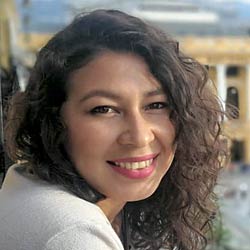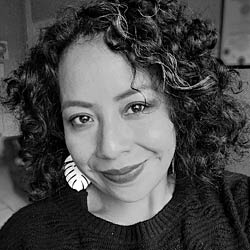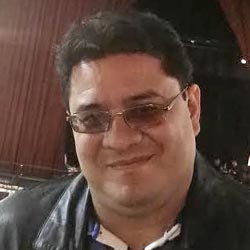
Iván Carrillo
Editor
@carrillazo
Iván Carrillo. Editor and science journalist. He is co-director and co-founder of Histories Without Borders. Currently general editor of the Tec Review platform at Tecnológico de Monterrey. He has been editor of Quo / México and Tangible / EL Universal. Collaborator for CNN en Español, Discovery Channel, TV Azteca, Expansion, El Universal, Televisa Radio, Undark Magazine and Milenio, among others.

Lynne Walker
President and Executive Director InquireFirst
@InquireFirst
S. Lynne Walker is a Pulitzer Prize finalist whose reporting has taken her to Mexico, where she lived for almost 16 years and reported on political, economic, legal and social issues affecting U.S.-Mexico relations.
Conexión Centroamericana
The reporters

Marcela Cantero Vásquez
Journalist specialized in health with more than 20 years in newspapers, magazines and digital media. This graduate of the University of Costa Rica, was part of the Costa Rican reference newspaper La Nación, where she was part of the founding team of the daily news proposal on science, health, environment and technology.
@marcelacanterov
At Grupo Nación, she participated in the largest convergence process of a communication company in Central America and the Caribbean, adding web-multimedia skills in the generation of digital content, video chats, monitoring of comments, electronic newsletters and management of social networks.
In that newspaper, she led the coverage of the AH1N1 pandemic. Currently, she collaborates in the informative agenda on the crisis by COVID-19, in La Voz de Guanacaste -a Costa Rican bilingual non-profit organization, printed and digital-, and in Delfino.cr -analysis web-.
She has conducted coverage and workshops for the United States National Cancer Institute (Cancer in the Media, Buenos Aires, 2012); 14 th International Congress on Infectious Diseases, (press, Miami, 2010); Global Water Partnership (Water Management: A Topic to Communicate, Panama City, 2009); United States National Institutes of Health (Medicine in the Media, Betsheda, Maryland, 2007); Institute of the Americas (4th Jack F. Ealy Workshop on Science Journalism, La Jolla, California, 2007); International AIDS Society (XVI International AIDS Conference 2006); United Nations Population Fund (Workshop: Are Population Issues News? San Juan Norte, Nicaragua, 2007); Costa Rican Social Security Fund and PAHO (Journalism and Health, San José, 2006 and 2005); Fundación Nuevo Periodismo Iberoamericano (First Latin American Workshop on Journalism and Education, Bogotá, 2006), among others.
In 2003, she completed a professional internship at the Spanish magazine Tiempo de Hoy, of Grupo Editorial Zeta, as part of the more than 270 scholarship holders of the Balboas Program for Young Latin American Journalists -Curso Iberis-, in Madrid.

Beatriz Benítez
Journalist with the Salvadoran web magazine GatoEncerrado, she completed her degree in journalism at the University of El Salvador, to which she added a diploma in general aspects of political systems and public management.
@beatrizebenitez
Coordinator of the political information project of GatoEncerrado, this media is characterized by its independence and specialization in in-depth journalism on the environment, human rights, gender and verification of public discourse, placing its focus on political power.
Benítez began her career in the Political and Social section of the newspaper El Mundo; later, she added new experiences in the editorial staff of La Prensa Gráfica, a reference newspaper in El Salvador.
Her career includes workshops and leadership projects, such as the TechCamp, organized by the U.S. Department of State's Bureau of Educational and Cultural Affairs, which seeks to empower members of civil society to use new technologies to fight corruption and strengthen democratic governance.

Evelyn Boche
Journalist for the Guatemalan newspaper elPeriódico with 10 years of experience in investigative reporting.
@EBoche_elP
She was part of the Siglo Veintiuno newspaper and ContraPoder magazine in that Central American country. She graduated from the University of San Carlos in 2005. In 2011, she did a professional internship, in Madrid, as part of the Balboa Program for Ibero-American Youth.

Moisés Martínez
Investigative journalist and editor of the newspaper's political section, La Prensa de Nicaragua, Martínez stands out for his in-depth reporting for which he has received numerous awards.
@moimaperiodista
In 2002, he won the first place in the Premio Pedro Joaquín Chamorro, in the written press category for a report on the disappearance of five million barrels of crude oil from the controls of the company Alba de Nicaragua, after the involvement of relatives of President Daniel Ortega.
Along these lines, in 2011, he won recognition from the Faculty of Humanities and Communication of the Central American University, based in Managua, for a research that showed how the company in charge of international airports awarded a $1 million contract to an unknown consortium with phantom partners.
The applause resounded again for this investigative journalist in 2017, this time with an international recognition, in the 11th edition of the prestigious Latin American Investigative Journalism Award of the Institute of Press and Society (IPYS).
The jury awarded him an honorable mention for the investigation where he exposed irregularities in the vaccine plant Mechnikov, a failed project that received a contribution of $14.1 million from Nicaragua's Social Security fund.
Moisés Martínez is part of the network of more than 270 professionals who were granted scholarships by the Balboa Program for Young Latin American Journalists -Curso Iberis- to carry out studies and a professional internship in Madrid, Spain.


Credits
This project is part of the Historias Sin Fronteras Cross-Border Science Journalism Initiative and has been made possible thanks to the support of the nonprofit journalism organization InquireFirst and the Department of Science Education of the Howard Hughes Medical Institute.